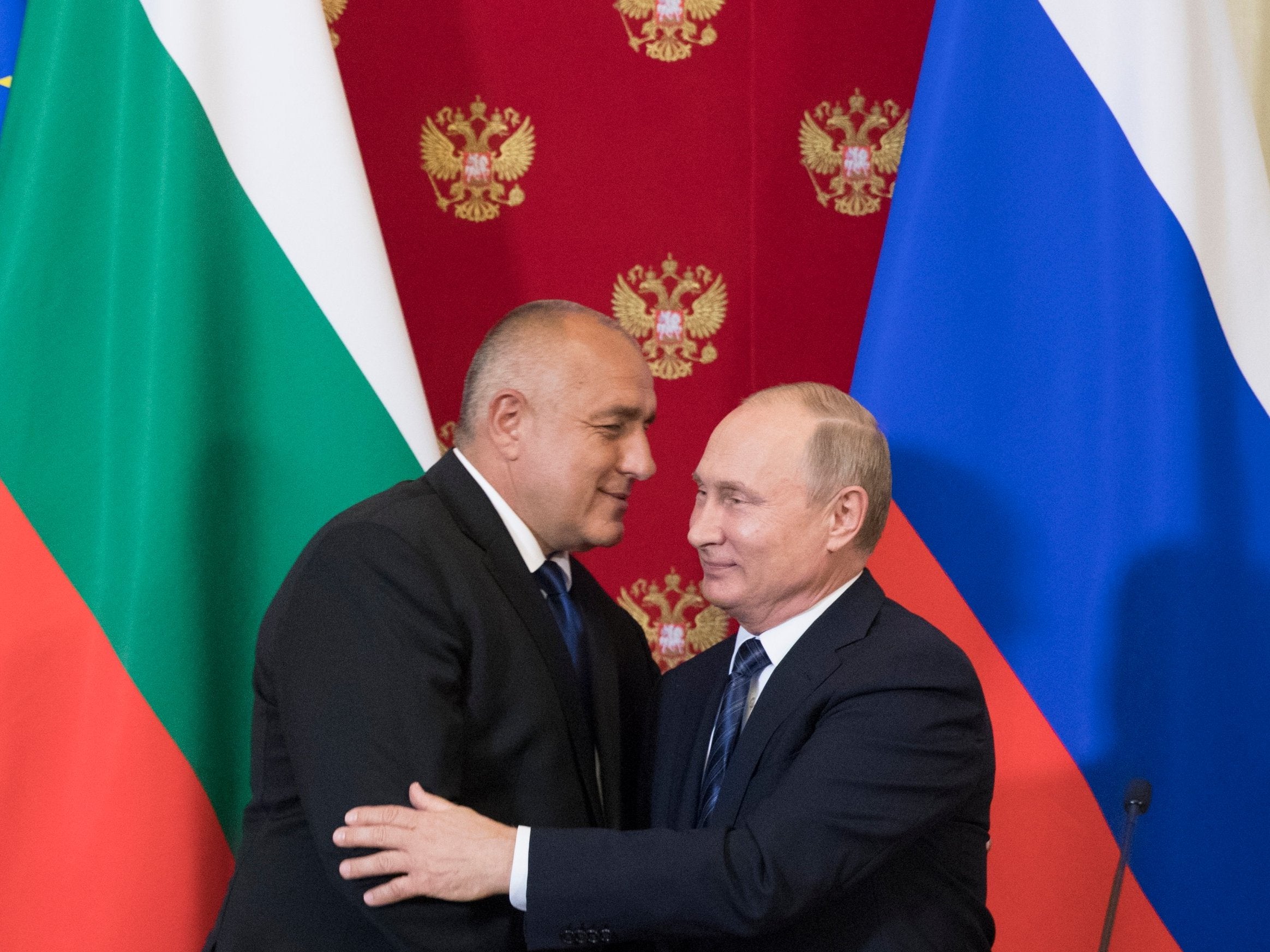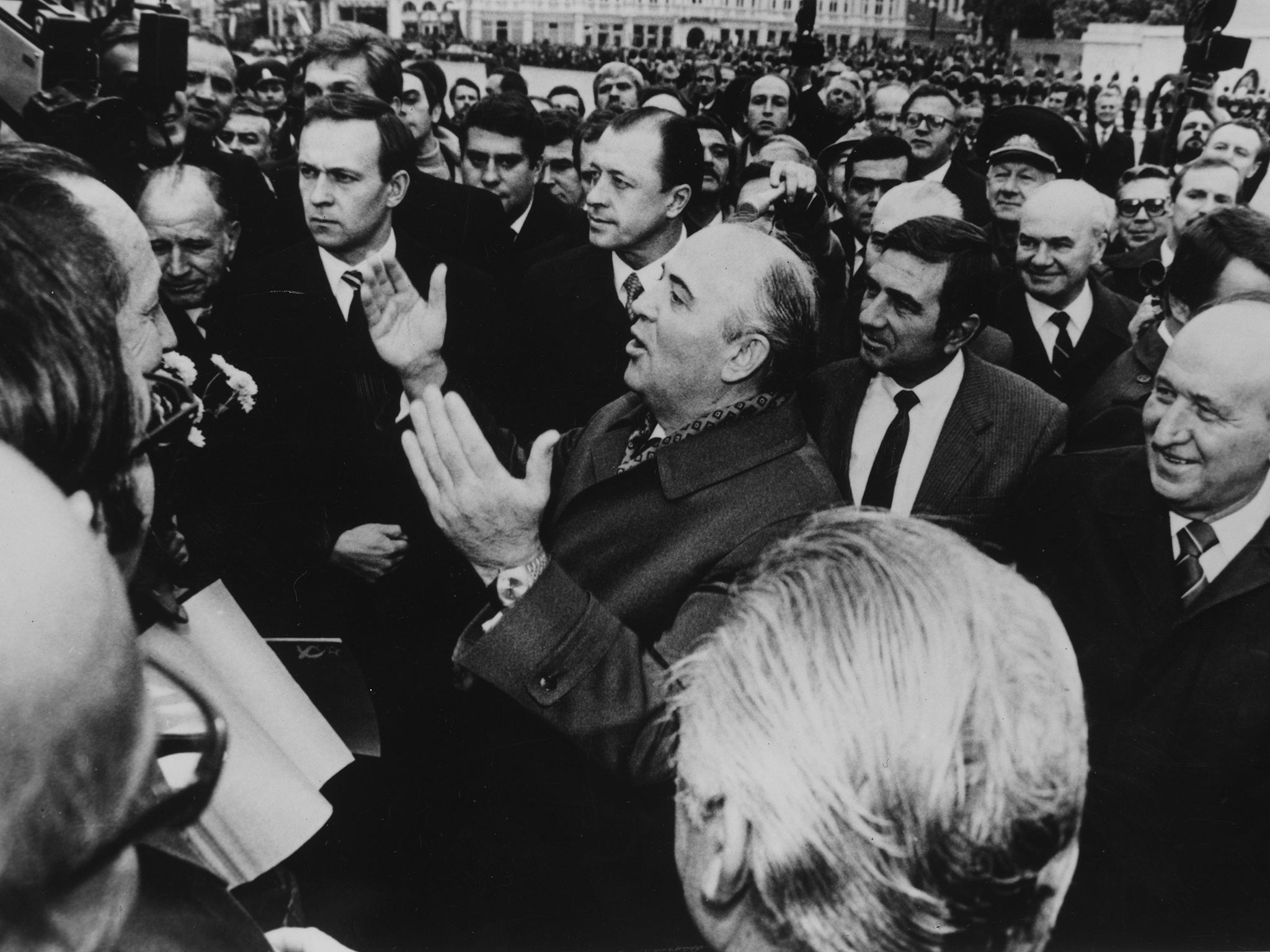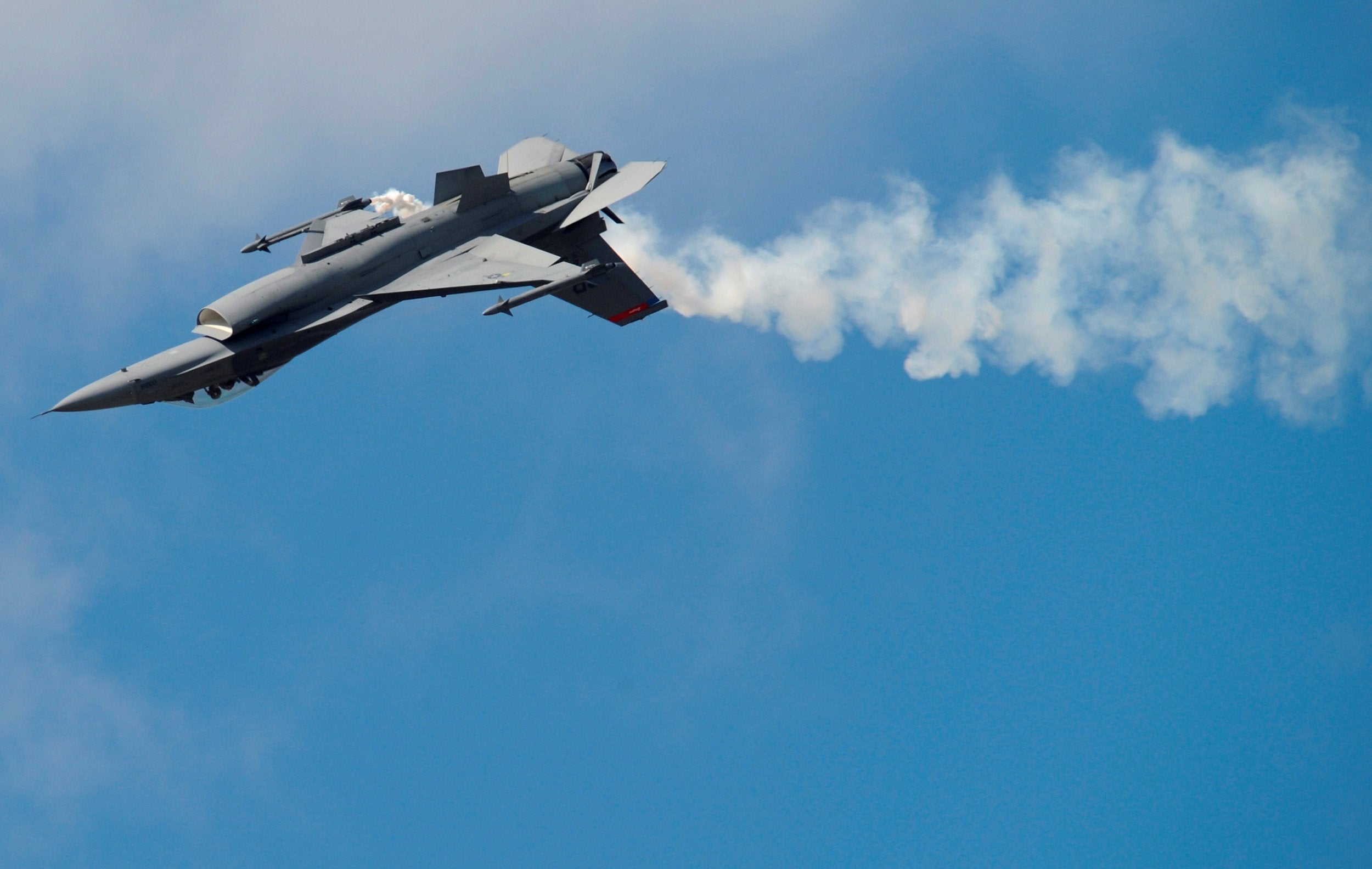Are Bulgaria’s strings still being pulled by the Kremlin?
As a member of Nato and the EU, the Balkan nation has moved closer to the west in recent years – but Russia is exerting its influence once more, says Borzou Daragahi


Vladimir Putin was said to be livid. It was bad enough that more than a dozen EU countries had collectively decided to expel Russian diplomats over the poisoning of former intelligence operative, Sergei Skripal, in the UK.
But the diplomatic offensive was announced by EU chief Donald Tusk in the Black Sea resort city of Varna in Bulgaria – a country the Kremlin consider to be within its political and economic sphere of influence.
So Russia’s network of Bulgarian influencers who dominate the country’s political, economic and media landscape went into action. Within days of Tusk’s announcement, in March 2018, Bulgaria’s Kremlin-friendly president Rumen Radev called a press conference to clarify his country’s stance on the Skripal poisonings. Days earlier, Russian military intelligence officials had entered the UK and allegedly used the chemical weapon novichok against a turncoat former spy and his daughter, ultimately killing a UK national exposed to the deadly toxin.
Radev declared that there must be “clear and irrefutable” evidence of Russian involvement in the poisoning before Sofia would join its Nato and EU allies to expel any Moscow envoys.
A senior Bulgarian official, responding to a long list of questions about Russian influence in the country, insisted to The Independent that “nobody put pressure on us in relation to thе Skripal case”.
Within weeks, both Radev and prime minister Boyko Borissov trekked to Moscow, seeking to win Putin’s approval and offering to resume frozen energy deals.
Putin, appearing slightly bored by the proceedings, publicly reminded them of how much control Russia held over Bulgaria.
“One company, Lukoil, has invested $3bn in Bulgaria,” he said, standing alongside Borissov, while claiming that the Russian energy company alone accounts for 9 per cent of the country’s GDP and a quarter of the state budget.
“That speaks volumes,” he said. “Don’t you think?”
Bulgaria proudly entered Nato in 2004 and joined the EU in 2007, seemingly bringing to an end decades of domination by Russia and its Communist Party surrogates.
But in recent years, as the US and EU have drawn inward, Bulgaria has – more so than even other Balkan and former eastern European Soviet satellite states – come under the yoke of Moscow. Bulgaria provides a case study of how Russia is using economic power to harden its influence in eastern Europe. While attention has been focused elsewhere, Kremlin-linked oligarchs and Russian firms have taken control of key elements of the country’s energy, media, banking, and communications sectors.
Encouraged by cheap loans from Kremlin-linked banks, hundreds of thousands of Russians have bought homes in Bulgaria, many just acting as private citizens hoping to settle there – but also serving as potential guarantor of Russian interests in any crisis. A Russian grocery store chain has opened hundreds of branches in the country. According to the Centre for the Study of Democracy, a third of Bulgaria’s GDP is controlled by Russian firms or their oligarchic Bulgarian allies.
The Kremlin counts supporters among the government of Borissov and in the opposition parties.
When you look at the lineup of our political scene and and the lineup of our economic scene, all roads lead to Moscow
The senior Bulgarian official acknowledges that the country is dependent like others in Europe on Russian gas, but is struggling to diversify and lower its dependence on the Kremlin.
He also insists that critics exaggerated the extent of Russian control over the economy. No Russians, he says, explicitly control Bulgarian banks or media outlets. Only one telecommunications firm is controlled by Russian stakeholders, and the supermarket chain is one of several owned by foreigners. UK nationals also own vacation properties in Bulgaria.
“We have US companies with shares in strategic businesses, as well as Austrian, French, even British,” he says. “People are people. As long as they abide by the rule of law and contribute positively to our communities, we welcome all.”
Still, critics maintain that despite Bulgaria’s official alignment with Europe and Nato, Russia has managed to capture key levers of power, even if Russian individuals don’t explicitly hold the reins.
“When you look at the lineup of our political scene and the lineup of our economic scene, all roads lead to Moscow,” says Tatyana Doncheva, a former prosecutor and politician in Sofia, the capital. “There’s not a single case of Russians coming here to invest in, say, manufacturing. Russia distributes money to specific businesses and businesspeople.”
The story of Bulgaria’s former minister of economy and energy minister, Traycho Traykov, illustrates the power that the Kremlin wields behind the scenes. He came aboard the first government of Borissov to help give his gruff centre-right party a technocratic sheen.
Almost immediately he came under pressure to sign energy deals with Russia that seemed to favour the Kremlin over Bulgarian interests. He was lobbied and cajoled by influential figures in politics and business who seemed to have ear of the highest figures in the country. He clashed repeatedly with the head of the Bulgarian branch of Lukoil, the Russian energy company.
“With all the Russian-linked energy deals, their prices are not market-based,” says Ognian Shentov, chair of the Centre for the Study of Democracy, a pro-west think tank. “You are siphoning billions from our economy.”
One day in 2011, Traykov ordered the head of the national electricity company to hold off on signing a controversial energy deal that many thought would give Russian partners an unfair edge.
The official signed the deal anyway, and Traykov fired him, only to have him reinstated by the prime minister. Eventually, a year later, it was Traykov who was forced out, accused of delaying the signing of energy deals.
Once out of the cabinet, Traykov became a successful opposition politician, winning a seat on the Sofia city council. He began a presidential run in 2016, calling attention to the nexus between Russian-influenced businesses and politicians.
That’s when Bulgaria’s big media began to target him. The vast television and newspaper empire owned by lawmaker and oligarch Delyan Slavchev Peevski, who has been linked to the Kremlin, began publishing stories alleging he was corrupt.
When he refused to back down, Bulgaria’s prosecutor began pursuing him on corruption allegations. The charges were dismissed by three separate courts, but then a newly created “anti-corruption” commission froze his assets. Traykov continues to deny the allegations.
The senior Bulgarian official insists that the judiciary is independent, and that anyone can take a media outlet to court if they believe it has humiliated, slandered, or falsely accused them.
“Traykov is a cautionary tale,” says Shentov, whose think tank helped assemble the Kremlin Playbook, a landmark 2016 report which details resurgent Russian expansion in eastern Europe.
“There are clear signs of both political and economic capture, suggesting that the country is at high risk of Russian-influenced state capture,” says the report.

Russia’s efforts in Bulgaria have been especially forceful in the energy sector. Russia’s state-owned Gazprom is Bulgaria’s only natural gas provider. Rosatom, Moscow’s state-owned atomic energy firm, dominates its nuclear sector. Lukoil controls Bulgaria’s only oil refinery and over half the fuel market. In coordination with Turkey, Russia is building a controversial gas pipeline through Bulgaria that is opposed by Americans.
After the 2014 collapse of the massive Corporate Commercial Bank, triggered after the Kremlin VTB bank called in loans worth €900m, Moscow and its affiliates took over even more businesses.
The senior Bulgarian official disputes the causes of the bank’s collapse.
Over the years, VTB has also steadily increased its control over Vivacom, the country’s main telecommunications firm.
The result, say critics, is the fleecing of consumers and the treasury. According to the Centre for the Study of Democracy, Bulgaria, one of Europe’s poorest countries, is paying Gazprom between 10 and 26 per cent more for its natural gas than the rest of Europe. This will cost it €1bn over the next five years, which amounts to the entire annual education budget of the country. The senior Bulgarian official counters that his country pays some of the lowest electricity prices in Europe.
“They’re most visible in the energy sector, forcing both our government and private enterprises into asymmetric deals,” says Shentov. “But across other sectors, as well the Russians control the people who are in charge.”
The Russians control the people who are in charge
Until last year, Borissov had avoided visiting Moscow during his entire political career. A former Sofia firefighter, he became the mayor of the capital before becoming a populist leader. He is said to have been extremely wary of the Kremlin.
“Both Americans and Russians want to screw us,” Borissov has told confidantes, according to a former senior official. “But Russians want us to love them, as well.” A senior Bulgarian official did not dispute the comment.
Moscow’s instruments of power in Bulgaria stretch across the country’s political landscape. The Kremlin’s closest politically ally, Ataka, is a far-right ultranationalist, xenophobic party, and works with the Russian embassy in Sofia, according to a leaked US diplomatic cable.
But Russia has allies in other corners. The country’s ethnic Turkish party, Movement for Rights and Freedoms, is largely seen as a conduit for Russian influence and dealmaking. Its founder, Ahmed Dogan, is a colorful onetime asset of the Soviet-era Bulgarian secret services. He has reinvented himself as a standard-bearer for Bulgaria’s Turkish-speaking minority and a major political broker.
“He’s essentially the kingmaker,” says Doncheva.
Even the mainstream Bulgarian Socialist Party and the centre-right parties, appear to acquiesce to or collaborate with Kremlin figures. Borissov’s Citizens for European Development of Bulgaria, known by the acronym Gerb, is careful to avoid alienating pro-Russian coalition partners even as he himself is described as suspicious of Russia.
“All the political parties say they are pro-EU and pro-Nato, which is not the case in practice,” says Valeri Grigorov, leader of a small opposition party.
The country’s broadcast outlets and major newspapers rarely focus attention on Russia’s deal-making and influence-peddling. The EU’s own policies may be encouraging media outlets to toe the Kremlin’s line, or at least avoid controversial storylines that touch upon Russia’s influence and exploitation.
Every EU development project devotes 5 per cent of its budget to advertising and promotion, which is doled out by Sofia to mass news platforms cosy with the government. Criticise the government or the Kremlin too much and lose out on lucrative ad money.
Bulgaria’s mass media regularly spews out false stories alleging imminent bans on Bulgarian food items to stoke anti-EU sentiment.
Russians inside Bulgaria are another conduit for potential influence. The hundreds of thousands of Russians owning homes in the country include ordinary citizens likely seeking to escape the cold weather, corruption and malaise afflicting contemporary Russia. In Bulgaria, they can anchor themselves to a largely Orthodox Christian and Cyrillic alphabet-using Slavic nation in the EU and on the Black Sea.
But unlike the smattering of European expatriates who work or study in Bulgaria, they often live clustered together in compounds outside of town centres, rarely interacting with Bulgarians, while shopping at their own chain of grocery stores and sending their kids to their own schools, fuelling suspicions they will serve as a kind of fifth column.
“If their government calls them, whatever their political affiliation they will respond,” says Shentov. “At the end of the day, it’s the Kremlin’s call.”
Russian fingerprints also appear among small groups of paramilitary organisations recruited from state security assets. They amount to right-wing pro-Kremlin motorcycle gangs concentrated on the country’s Black Sea coast.
“Of course, it is something dangerous,” says Raden Kanev, a lawyer and political analyst and former right-wing politician who tracks such groups.
The senior Bulgarian official says there was only one motorcycle gang that flew the Russian flag in the country, and denied the existence of any paramilitary groups.
Bulgaria is also the target of sustained media manipulation offensives that Sofia officials believe are linked to Russia. “We comply strictly with the EU plan to combat disinformation and we also work with our colleagues in the strategic communications division of Nato, to target fake news and hybrid media attacks,” the senior Bulgarian official says.
After his first meeting with Putin during a visit to Gdansk in 2009, the burly 6ft Borissov came away visibly shaken.
“When he came back he was really scared,” says one former senior Bulgarian official, who spoke on condition he not be named. “The only certain way to destroy your political career in Bulgaria is to oppose the Russians.”
The senior Bulgarian official declined to comment, instead referring to bland public statements issued after the meeting.
But despite its channels of influence, Russia doesn’t always get its way. It lost big in its attempt to coax neighbouring North Macedonia out of Nato, and earlier this year it lost another major battle in Bulgaria.
Even though the Cold War ended 30 years ago, Bulgaria never fully updated its armed forces from the Soviet era. So when it was time for it to spend up to €750m to upgrade its air force and replace its ageing MiG-29s, the stakes were high.
On one side, there were those advocating that Bulgaria purchase American F-16s, drawing it closer into Nato and the partnership with the US. On the other were those closer to the Kremlin, including Radev, who advocated that Bulgaria purchase Gripen jets from Sweden, a non-Nato country that would not draw the same level of scrutiny of the country’s personnel and their ties that a major purchase of US weapons might entail.
“With the US you have a different security architecture,” says Shentov.

The fight was on. It was part of an ongoing battle between the west and Russia over influence and control of key institutions in Bulgaria and other small Balkan and eastern European states, including Nato and EU members. Factions within the country’s powerful military and security institutions penned op-eds, lobbied lawmakers, and made entreaties behind closed doors. Officials from the US and Russia held meetings with counterparts and interlocutors, nervously watching to see how the drama would unfold in parliament.
“The pro-Russian president and Ataka were for the Gripens,” says Shentov.
“We are a democratic society and such debates are normal,” says the senior Bulgarian official. “We have a clear procedure regarding the acquisition of new fighter jets.”
For once the US ascertained the stakes and got involved, dispatching senior US officials to Sofia. “The United States is committed to working with the Bulgarian government to tailor the final scope of a potential F-16 sale to fit its budgetary and operational requirements,” US Secretary of State Mike Pompeo declared in December.

The next month, parliament voted 130-84 to give the government the go-ahead to begin negotiations with the US for the purchase of eight F-16s, a rare defeat for the Kremlin, but one that showed the influence Washington and the west could wield if they only paid attention.
“The Americans used to have more influence,” says Doncheva, the former prosecutor. “They’re so naive as to believe that because Bulgaria is a member of the EU and Nato, and they have a small military base here, all their problems are solved. Nothing is solved.”
Milena Hristova contributed to this report
Join our commenting forum
Join thought-provoking conversations, follow other Independent readers and see their replies
Comments
Bookmark popover
Removed from bookmarks